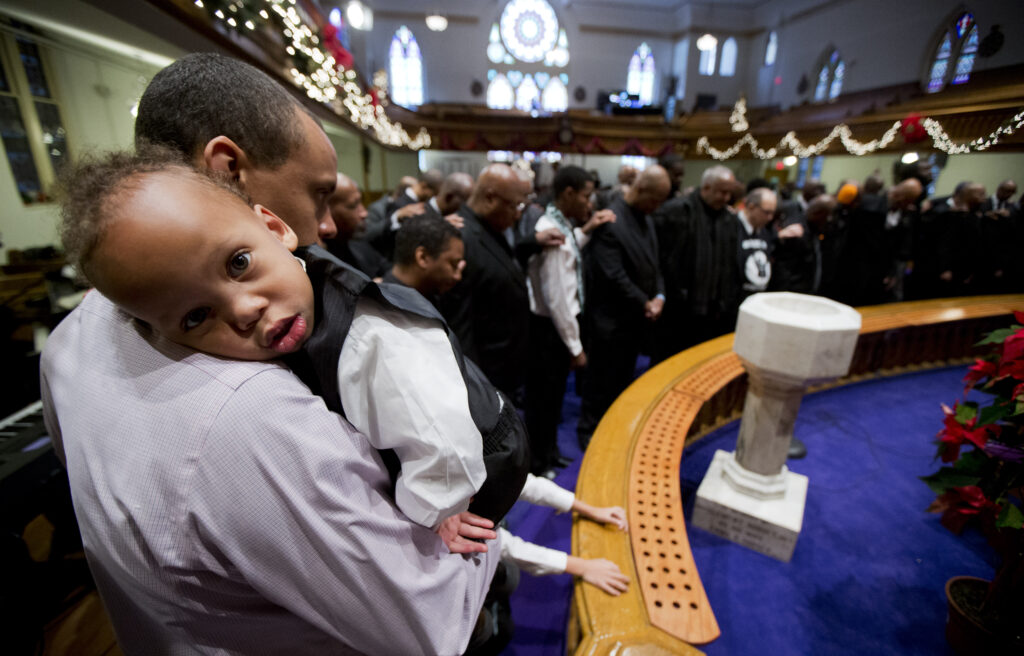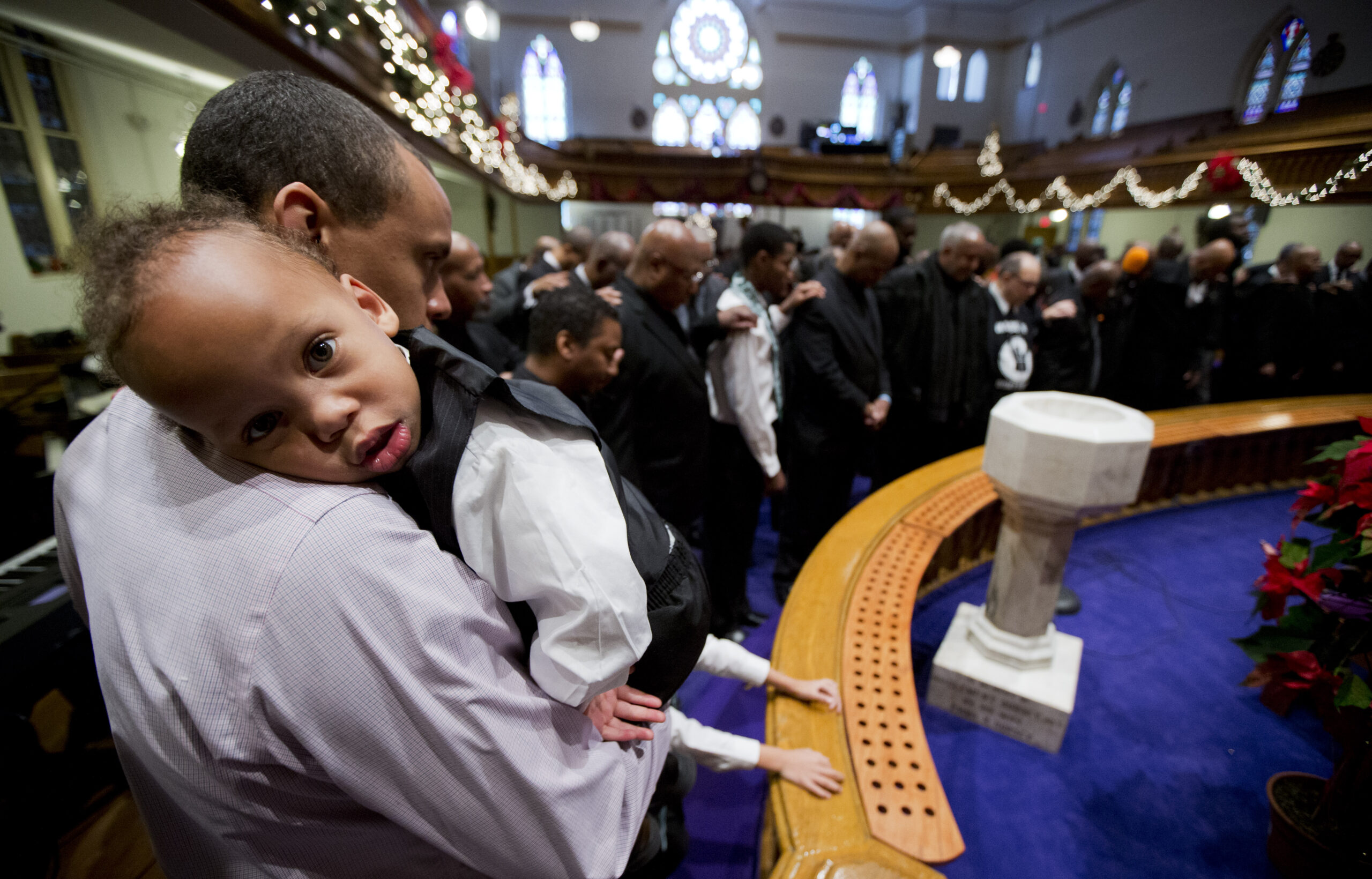A good father is worth his weight in gold. This is not a passage from Proverbs or words from a renowned sage. This is my own assessment, and I proclaim it with confidence.
In these sometimes troubling, always challenging times, we need more of our men to step up as fathers but also to set examples of what it means to be a good father.
Of course, “good” is a very subjective term. Yet, we all know the difference between good and evil, upstanding and downright disgraceful, attentive and neglectful. A good father is one who not only loves his children, but also takes care of them and participates in their upbringing. He teaches them the difference between right and wrong, the consequences of bad decisions. He guides them in the right direction; and if they get off track, he corrects them.
A good father not only cares for his children, he also takes care of them. He does not allow the relationship he may have with his children’s mother to determine how he treats his sons and daughters. He fights for the right to spend quality time with his children, but he also supports them financially and emotionally.
“Growing up with a good father sets the stage for many things in a child’s life,” says Dr. Courtney B. Johnson, a psychiatrist. “He makes the child feel protected from the harsh realities of the world. A good father aids in shaping the child’s morals, values and core beliefs.”

Those who know me well know that I adore my father though he has been deceased for decades. My mother passed when I was just 10 years old, and my father reared his daughters with a stern but loving hand. After my mother’s funeral, there was a dispute with my aunts (his sisters), who had discussed which of us girls each would take home. When my younger sister alerted Dad to what she overheard, he broke up the meeting and he made it clear that all his girls were staying home with him. My sisters and I were relieved. My aunts all left in a huff.
Dad by no means was a perfect man or a perfect father, but it doesn’t take perfection to be a good father. It takes love and care, patience and guidance. We had to attend church on Sundays and sometimes during the week. We didn’t miss a day from school unless we were severely ill. We had to study and make good or at least decent grades.
” In these sometimes troubling, always challenging times, we need more of our men to step up as fathers but also to set examples of what it means to be a good father.”
Lynn Norment
My father only finished the 8th grade because he worked the family farm to take care of his widowed mother and younger siblings. But we knew from elementary school on that we would go to college. It was not to be debated; it was expected.
Growing up with my father was tough at times, but I appreciate how he reared us. I credit him with my drive for independence, achievement and adventure. He didn’t care what we studied in college or chose as careers, though he did want a doctor in the family. He just wanted us to be able to take care of ourselves, use common sense and not be dependent on others, whether we were married or single.
I know that I was fortunate, for as I ventured into the world, I learned that many of my friends and acquaintances were not lucky enough to have a father in their lives as they grew up.
These days, even more children are growing up without fathers in the home or even in their lives. There are an estimated 73 million fathers in the United States. According to the Census Bureau (2022), 18.4 million children–that’s one in four– grow up without a biological, step or adoptive father in the home. It is not surprising that those children are negatively impacted in various ways.
According to research from the National Fatherhood Initiative, children in fatherless homes are exposed to four times greater risk of poverty, more likely to have behavioral problems, experience two times greater risk of infant mortality, more likely to commit a crime and more likely to go to prison.
Children who grow up without fathers at home are seven times more likely to become pregnant as a teen, more likely to face abuse and neglect, more likely to abuse drugs and alcohol, two times more likely to suffer obesity, and two times more likely to drop out of school.
At the same time, we know that a father’s presence in the home contributes to a strong foundation for the well-being of their children. In addition to a reversal of the negatives mentioned above, children with fathers at home are at lower risk for infant mortality, low birth weight, emotional and behavioral problems, poor school performance, and incidences of suicide.
And, according to the National Fatherhood Initiative, mothers benefit greatly when fathers are involved during pregnancy and in rearing their children. Those benefits include mothers more likely to receive prenatal care, less likely to smoke during pregnancy, healthier births, and lower risk of post-partum stress and depression.
“Growing up with a good father helped me develop a sense of security and self-esteem, as well as provided guidance and support as I navigated the challenges of life,” says Samaria Sallie, an incoming freshman at the University of Memphis who grew up with a single father. “My father is a positive role model, and he shows me how to be responsible, kind and respectful.”
Meredith Franklin, a senior legislative research analyst for the Memphis City Council, says her father was supportive of her education and other efforts too. “He set an example for having a good work ethic and being an honest, upstanding individual,” she adds.
And then there is Joe Thornton, who is of the same generation as Franklin’s father. “My father provided the foundation of my life,” says the retired computer operations manager. “He took care of my mother, my siblings and me and made sure we had a roof over our heads and food on the table. He was a great role model.”
There is no doubt that fathers participating in the lives of their children is a great benefit for children and for the fathers themselves. We as individuals, as community and as a society must continue to work toward the goal of more fathers being responsible for and involved in the lives of their children.








